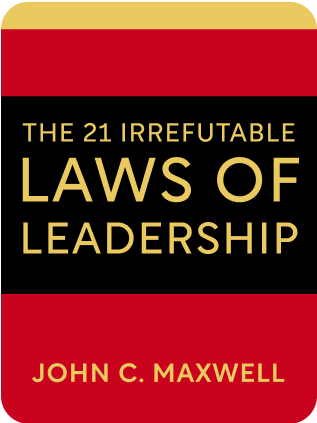

This article is an excerpt from the Shortform book guide to "The 21 Irrefutable Laws Of Leadership" by John C. Maxwell. Shortform has the world's best summaries and analyses of books you should be reading.
Like this article? Sign up for a free trial here .
What is the Law of Empowerment? Why is it important for leaders to empower their subordinates by delegating critical functions of their organization?
The Law of Empowerment is John C. Maxwell’s twelfth law of leadership. This law states that effective leaders have both the trust and the courage to empower others. If leaders don’t empower their subordinates, they inadvertently limit their organization’s success because others aren’t allowed to reach their full potential.
Keep reading to learn about the Law of Empowerment by John C. Maxwell.
The Law of Empowerment
To lead well you need to share your power, especially with other leaders. If you give people responsibility, authority, and resources, and help them develop as leaders, they’ll achieve. Believe in people, because when you, as a leader, believe in them, they’ll believe in themselves.
If you don’t follow this law, your organization will suffer. Followers will give up on their work, or leave.
There are three reasons leaders struggle with the Law of Empowerment:
- Fear of loss. Some leaders worry that if they empower their followers, their followers will surpass or replace them. This may happen in the short term, but being able to train leaders is a very valuable skill. If the people you lead are always successful, people will realize that they are successful because of how you developed them.
- Fear of change. By nature, people resist change. As a leader, you must consciously fight against this fear. Change improves organizations. You must be willing not only to change, but to spearhead the change.
- Fear of unworthiness. If you’re self-conscious, you may think you personally don’t have any power, and if you don’t have power yourself, then you can’t share it with others. Good leaders believe that a single person can make a change, whether that person is themselves or their followers.
Example of a Failed Application of the Law: Ford Motor Company
In 1903, Henry Ford cofounded Ford Motor Company. His goal was to build a car that was affordable for the average American. He came up with the Model T and fell so in love with it that he refused to change anything about the design. One day, his designers presented a prototype of a new and improved model, and Ford was so angry he tore the prototype’s doors off and destroyed the rest of the car with his bare hands.
Ford wasn’t only protective of his designs. He didn’t like giving others authority over anything. He created a “sociological department” to keep an eye on his employee’s personal lives. He undermined his leaders, even his son Edsel, who was president of the company.
The company suffered. In 1914, Ford Motor Company had produced almost half the cars in the US, and by 1931, the company’s market share had almost halved. The best employees left.
The company got another chance when Henry Ford II, Henry Ford’s grandson, took over the company and convinced his grandfather to step away. Ford II knew he needed help to run the company and looked for talent. He hooked up with several strong leaders and they turned the company around. However, Ford II then made the same mistake as his grandfather—he failed to consider this law. He felt threatened by the strong leaders. He pitted them against each other and demoted them when they were most successful. He couldn’t share power with others, and the company and its employees suffered, just like they had under his grandfather.
Example of a Successful Application of the Law: Abraham Lincoln
Most presidents select their cabinet members from their allies. Abraham Lincoln chose people who disagreed with him, his political rivals, and his antagonists—people who were potentially as strong or stronger than him. He was confident enough in his own leadership that he had no problem giving power to other leaders.
Lincoln empowered others throughout his presidency. He didn’t micromanage or look over the shoulders of his generals. When Lincoln gave General George G. Meade command of the Potomac army, Lincoln told him that it was a very important command, that he believed Meade could handle it, and that Meade had full control of the army—Lincoln wouldn’t interfere. While Meade wasn’t perfect, he did a great job with his first major assignment—Gettysburg.
Applying the Law of Empowerment
To empower people, you need to believe in them. If you have trouble with this, reflect on your followers. Consider their positive qualities, strengths, and potential. Think about what they could do if they reached their potential, and then help them reach it.
Empowering people also involves sharing authority. If you have trouble with this, start by identifying your best people, and then set them up to be successful. Help them choose goals, give them the resources and responsibility they need to achieve the goals, and if their first try fails, jump in and help them to succeed. Once you see people doing a good job with the power you’ve given them, it will be easier to share power the next time.

———End of Preview———
Like what you just read? Read the rest of the world's best book summary and analysis of John C. Maxwell's "The 21 Irrefutable Laws Of Leadership" at Shortform .
Here's what you'll find in our full The 21 Irrefutable Laws Of Leadership summary :
- Why working with people is the only way to do meaningful work
- How to become the kind of person that can get things done
- Why you don't need to be good at all the laws of leadership to be a good leader






